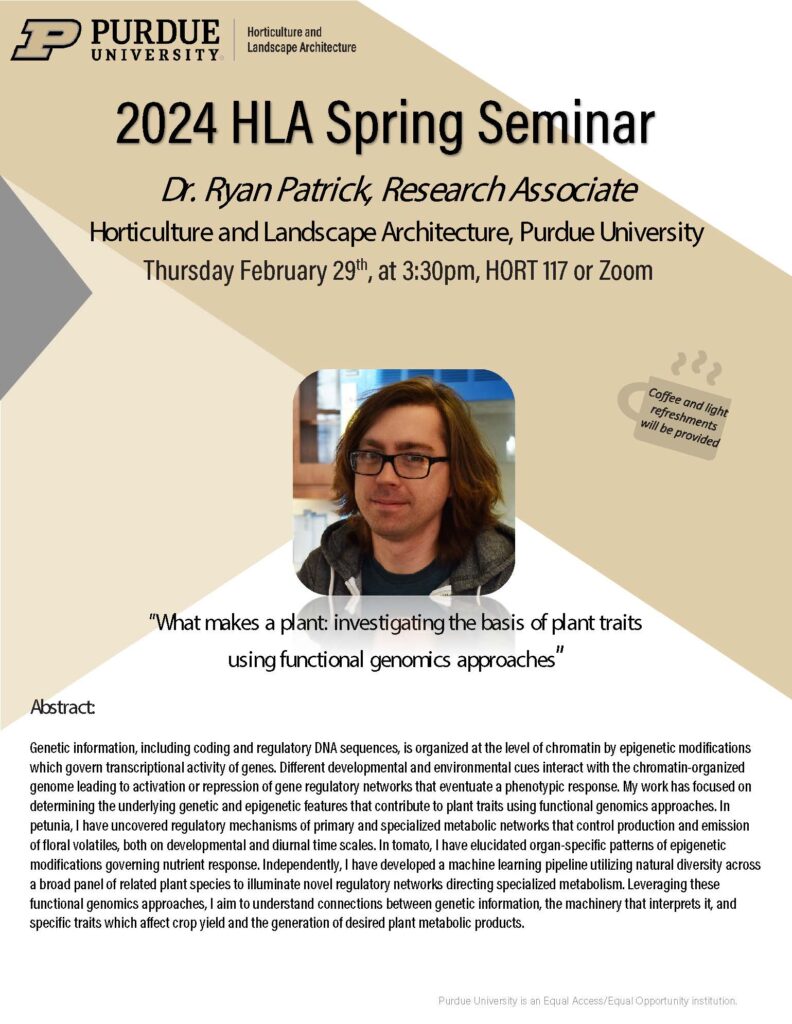
Dr. Ryan Patrick, Research Associate
Horticulture and Landscape Architecture,
Purdue University
Thursday February 29th, at 3:30pm
HORT 117 or Zoom
“What makes a plant: investigating the basis of plant traits using functional genomics approaches”
Abstract: Genetic information, including coding and regulatory DNA sequences, is organized at the level of chromatin by epigenetic modifications which govern transcriptional activity of genes. Different developmental and environmental cues interact with the chromatin-organized genome leading to activation or repression of gene regulatory networks that eventuate a phenotypic response. My work has focused on determining the underlying genetic and epigenetic features that contribute to plant traits using functional genomics approaches. In petunia, I have uncovered regulatory mechanisms of primary and specialized metabolic networks that control production and emission of floral volatiles, both on developmental and diurnal time scales. In tomato, I have elucidated organ-specific patterns of epigenetic modifications governing nutrient response. Independently, I have developed a machine learning pipeline utilizing natural diversity across a broad panel of related plant species to illuminate novel regulatory networks directing specialized metabolism. Leveraging these functional genomics approaches, I aim to understand connections between genetic information, the machinery that interprets it, and specific traits which affect crop yield and the generation of desired plant metabolic products.